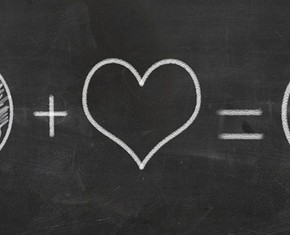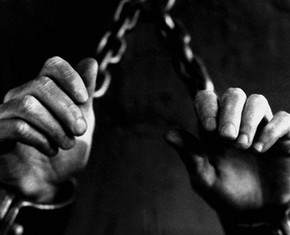The views expressed in our content reflect individual perspectives and do not represent the authoritative views of the Baha'i Faith.
“No one’s perfect”: we all know the saying. Without a doubt, it has proven to be true in my life—and the Baha’i teachings confirm it.
The Baha’i writings explain that each person has a set capacity, and will have certain imperfections. The diversity of humanity gives each one of us different divine qualities we can reflect to rise above our lower nature to reach our spiritual capacity:
Difference of capacity in human individuals is fundamental. It is impossible for all to be alike, all to be equal, all to be wise. Bahá’u’lláh has revealed principles and laws which will accomplish the adjustment of varying human capacities. – Abdu’l-Baha, The Promulgation of Universal Peace
When I first learned about these Baha’i teachings regarding human nature and the different capacities individuals have, I felt a small wave of worry. Does this mean we can’t all grow as much as we want?
Then I began to think about it. Aside from the different strengths and weaknesses we all naturally have, there are other reasons for why we may have varied capacities. Some people only live for a short time, while others can live a full century. We vary intellectually. Some are more prone to anger than others. Genes and social realities all affect the opportunities we receive. These differences all affect our ability to develop different spiritual qualities.
If none of us can ever individually live up to God’s standards for humanity, how can we grow close to God? And if some of us face less barriers to living righteous lives, does that mean that those who were dealt a tougher hand in life are just less likely to find spiritual peace?
The Baha’i Writings reassure us:
…this [difference in capacities] does not cause one to be shut out from gifts and bounties; for this is not the Day of Justice but the Day of Grace, while justice is allotting to each whatever is his due. Then look thou not at the degree of thy capacity, look thou at the boundless favour of Bahá’u’lláh; all-encompassing is His bounty, and consummate His grace. – Abdu’l-Baha, Selections from the Writings of Abdu’l-Baha
While limitations exist, I realized that becoming too caught up in trying to identify them would become a limitation in and of itself. The Baha’i teachings advise:
Consider not thy capacity and merit, nay rather consider the grace of thy Lord, the Clement, the Merciful. Verily, thy Lord confirmeth whomsoever He willeth of His servants, through the glad-tidings of the Kingdom, the signals of clemency and the spiritual fragrances. – Abdu’l-Baha, Tablets of Abdu’l-Baha
Accepting that we can’t be perfect doesn’t mean that we shouldn’t aim for excellence. The Baha’i writings push us to individually and collectively strive to constantly improve ourselves:
Be ye in that land vanguards of the perfections of humankind; carry forward the various branches of knowledge, be active and progressive in the field of inventions and the arts. Endeavour to rectify the conduct of men, and seek to excel the whole world in moral character. – Abdu’l-Baha, Selections from the Writings of Abdu’l-Baha
Viewing ourselves exclusively as flawed and limited creatures can be disempowering. The Baha’i writings point to the great capacity we have to reflect light and goodness in the world around us.
Altogether it is evident that man is more noble and superior; that in him there is an ideal power surpassing nature. He has consciousness, volition, memory, intelligent power, divine attributes and virtues of which nature is completely deprived, bereft and minus; therefore man is higher and nobler by reason of the ideal and heavenly force latent and manifest in him. – Abdu’l-Baha, The Promulgation of Universal Peace
















Comments
Sign in or create an account
Continue with Googleor